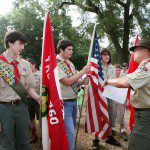Everyone’s celebrating the Cubs victory — the underdog team, against all odds winning the World Series for the first time in 108 years. And taken in isolation, that is extraordinary, to have been the underdog year after year, and now, in 2016, to emerge from that “lovable loser” status to win the World Series. It’s proof that anything can happen, that impossible dreams can come true, and seen as percursor or metaphor, or somehow connected to our very unexpected 2016 election.
Except that there were reasons why the Cubs had a 108 year drought.
From 1921 to 1981, the Cubs were owned by the Wrigley Company — hence “Wrigley Field.” In 1981, the Tribune Company, which also owned WGN, acquired the team, and between 1978 and 1990, Cubs games were broadcast nationwide as part of that channels “superstation” programming, gaining the team fans across the country. (See wikipedia here and here.) In 2009, the Ricketts family bought the team, and for the first time it was owned by individuals rather than a corporation.
What difference does this make? I’m not a baseball expert by any means, but my sense it that this did have a significant impact. When owned by the Tribune Company, I imagine that it had something of the status of an annuity line of business. The Cubs earned money year-in and year-out through ticket sales and merchandise and TV rights. Again, I don’t really know, but I could well imagine that there wasn’t anyone that really had the same personal motivation to see the team succeed as the Ricketts now do — and with motivation comes the willingness to invest in a great, though expensive manager in Theo Epstien.
Here’s another bit of history and context: the Cubs play in Wrigley Field, the second-oldest ballpark in the country, and the last one to have lights installed to permit play after dark, in 1988 — and I vaguely remember night games being quite contentious, and it seems to me there are still limits on the number of night games permitted. Surely this gives, and gave, them a disadvantage in terms of the potential ticket prices. The Ricketts also initiated a major renovation of the park, also contentious and requiring substantial negotiations with the city and with the owners of neighboring buildings who profited by selling rooftop seating. To be sure, the Wikipedia article appears somewhat dated, so it’s not clear what the status of the project is, but it seems to me that the Tribune Company was either uninterested in renovation or figured it was too politically sensitive to pursue as primarily a media company, which if nothing else further points to the fact that the Ricketts ownership marks a new era.
In other words: it’s not a fluke. I’m sure an actual baseball fan could give far more context and history, but, as an actuary, I’m here to tell you that this is not a case of a “near-impossible event coming to pass,” and should not be used as an omen or portent or be imbued with some sort of deep meaning.
But it’s still a good thing. (Go, Cubs, go!)













